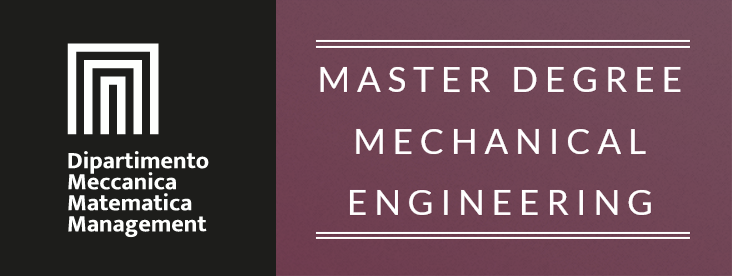The Department is divided, for didactic, scientific, logistical and organizational reasons, in Divisions:
In the economic-managerial engineering area, enterprise systems (also at local - regional level) are analysed. This includes the client-supplier chain, organization, project management, innovation management, knowledge management and the management of human resources. Specific fields of study concern the construction, manufacturing and service analysis.
The Mathematics Division research interests cover all the areas of Mathematical Analysis (from Calculus of Variation to Real and Complex function theory and analytical number theory), all the ones of Geometry (from combinatorics ones to the computational and descrittive ones) and the ones of Mathematical Physics.
Fluid Machinery and Energy Systems
The main activities are fluid dynamic analysis, both theoretical and experimental, with particular reference to the function of fluid machines (i.e compressors, turbines, hydraulic machines, internal combustion motors, hydraulic transmissions) and fluid dynamic optimization (with particular reference to wing profiles, blade profiles and industrial after-burners for combined-cycle plants).
Moreover, energy analysis, both theoratical and experimental, of the following research topics is undertaken:
- the performance of thermal and hydraulic machines;
- the hydraulic and pneumatic systems; wind machines; testing;
- environmental impact of energy systems; energy saving;
- thermo fluid dynamic measures, focusing on the analysis and characterization of sensors and measurement chains according to mechanical size, thermal and fluid dynamics, for the correct evaluation of measurement uncertainties.
Manufacturing and Industrial Systems
With regards to technology and working systems the principal activities concern the study of the interrelationships between materials, treatment and work processes as well as the planning and optimization of conventional and non-conventional productive technologies using analytical and numerical techniques and artificial intelligence.
Integration of CAD / CAM through rapid prototyping, reverse engineering, automatic planning of trials, planning of numerical control machines, are all used to study the "Quality" systems.
In the plant area, analysis of the production systems, of the integration man-machine (with particular attention to the reliability of the human-component) and of the environmental problem list of the industrial fittings as well as the management of urban solid refuse systems, are developed.
Mechanical Design
This area essentially deals with the functional planning of machines and mechanical systems, of automation and industrial robotics, of mobile robots, of the theoretical and experimental study of systems of motion transmission.
It also includes the analysis of mechanical vibrations (in a workplace settings), the monitoring and diagnostic criteria of machines with the aid of the vibrations, of biomechanics, of MSA (Multibody System Analisys) and dynamic FEM calculation techniques, and of mechanics of conventional and innovative materials.
Finally, the structural analysis in the elasto-plastic field, under static and under work load conditions, using numerical and experimental techniques, the solid construction models for planning, CAD, and artificial intelligence techniques to aid planning activities are dealt with.





